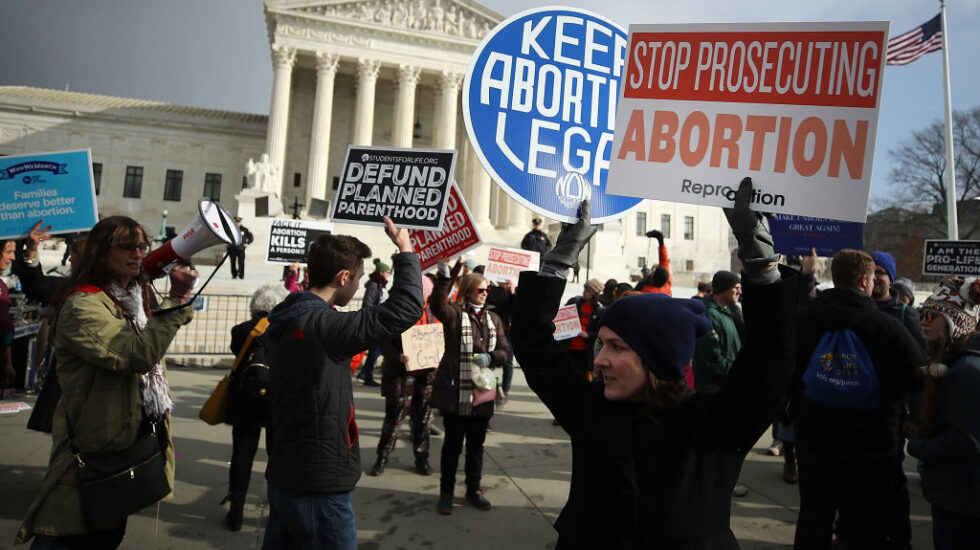The Biden administration is planning to sue Texas over its new abortion ban, according to The Wall Street Journal. A lawsuit may be filed as soon as Thursday.
Details of the Biden administration’s legal strategy are unclear, but the Journal reports, “The Justice Department is expected to pursue an argument that the Texas law illegally interferes with federal interests.”
On Monday, Attorney General issued a statement saying that the DOJ was “urgently” exploring all options “to protect the constitutional rights of women.”
The Texas law, enacted September 1st, is the most restrictive in the nation. Dubbed the Texas Heartbeat Act, it bans abortions after fetal cardiac activity is detected. That normally happens around the sixth week of pregnancy, before many women know they’re carrying. The law makes no exceptions for rape or incest.
A novel feature of the law makes it difficult to challenge in court. The Journal explains:
In writing the Texas Heartbeat Act, known as Senate Bill 8, or SB 8, lawmakers assigned enforcement to private parties giving them an incentive by authorizing damages of $10,000 or more if they successfully sued a defendant they accused of performing or aiding in an abortion. The law puts the enforcement powers in the hands of private citizens, rather than state or local officials, leaving its opponents without obvious individuals to sue.
“The Constitution, including Roe v. Wade, only applies against the government, it doesn’t apply against private individuals,” Laurence Tribe, a constitutional law professor at Harvard University, told Time. “That’s what makes this really dangerous.”
Last week, the Supreme Court rejected a request by abortion providers to block SB8, but the Justices made clear they were not ruling on the core issue of its constitutionality.
Earlier this month, President Biden pledged “a whole-of-government effort to respond to this decision, looking specifically to the Department of Health and Human Services and the Department of Justice to see what steps the Federal Government can take to ensure that women in Texas have access to safe and legal abortions as protected by Roe, and what legal tools we have to insulate women and providers from the impact of Texas’ bizarre scheme of outsourced enforcement to private parties.”
The expected DOJ suit may eventually give the high court another opportunity to examine the law.
In its next session, the Supreme Court is scheduled to rule on Mississippi’s ban on abortions after 15 weeks. That timeframe violates prior legal precedent – 1992’s Planned Parenthood v. Casey sets the cutoff around 23-24 weeks – but anti-abortion advocates are hoping the Supreme Court’s new conservative majority rewrites rules that have existed for decades.
Texas’ law is likely to be copied in GOP-led states across the country. Politico reports:
Florida Senate President Wilton Simpson said Thursday that “there is no question” Republicans will push for a bill like Texas’ in its upcoming session, and Gov. Ron DeSantis promised to “look more significantly at it” in the weeks ahead. Arkansas state Sen. Jason Rapert said he’s updating a six-week abortion ban he previously introduced to mirror the language of the Texas statute. And South Dakota Gov. Kristi Noem said Thursday that she’s looking at adapting the Texas law for her state
UPDATE: Attorney General Merrick Garland announced the action on Thursday afternooon.
